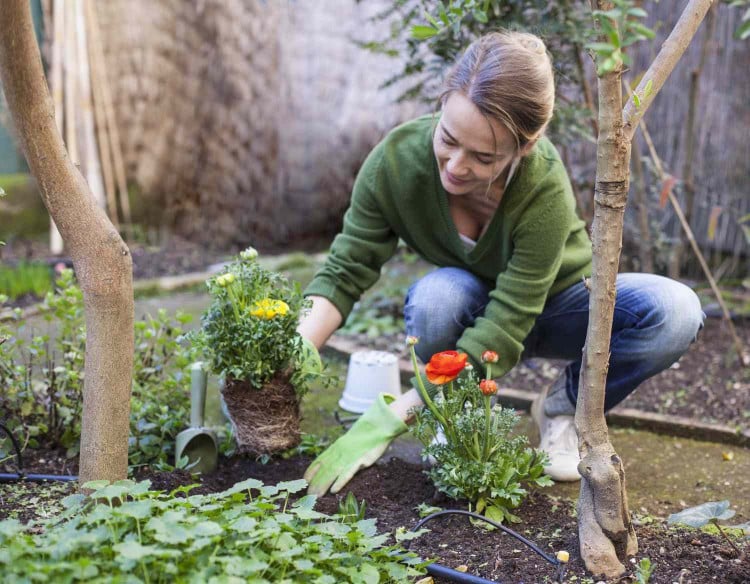How Hobbies Can Contribute to Cognitive Health
Having a hobby can help boost your cognitive health.
Specifically, hobbies that utilizes hand-eye coordination, like gardening or fishing, can be helpful in maintaining cognitive function.
Experts recommend people diversify their hobbies, participating in activities that move their body, sharpen their mind, and encourage social life with friends and loved ones.
Having a hobby isn’t just a way to fill time—it can actually boost your cognitive health as you age.
Aging is often measured and defined by how someone looks and feels physically, but cognitive health is just as important. And as it turns out, your hobbies can play a role in determining this.
“Hobbies can help with socialization and protect against loneliness, which has been associated with a higher risk of dementia,” Breyanna Grays, MD, a board-certified neurologist, told Health. “Along with socialization, hobbies can improve one’s mental health and provide various cognitive benefits.”
It all starts with doing something pleasurable or rewarding that triggers neurons in the brain that release the chemical dopamine. This release causes a feel-good sensation, which can make a person want to repeat an action over and over. Repetition turns an action into a hobby.
The impact that dopamine levels have on the motivation to repeat something is already well-established.
Research shows that dopamine neurons are known for their strong responses to rewards and their critical role in positive motivation. They’re also known to transmit signals related to non-rewarding experiences such as aversive or alerting events.
“The key is doing something you enjoy and doing it consistently,” Kimberly Johnson Hatchett, MD, a board-certified neurologist, told Health. “Especially new hobbies because you’re creating new neural connections by learning something new.”

Most Older Adults Don't Know You Can Test for Alzheimer's Disease There is an importance to both mental and physical activity for cognitive function, and research shows that when one or both are not in balance it can wreak havoc on the body. Last year, researchers at King’s College London found those with anxiety, depression, and bipolar disorder were more likely to be medically frail, a condition associated with a higher risk of physical comorbidities and even death. The World Health Organization supports this idea, noting that people with severe mental health conditions may die as many as two decades earlier due to “preventable physical conditions.” While genetic, environmental, and lifestyle factors are all thought to influence cognitive health, but the addition of leisure activities has been confirmed to be a protective factor for the cognitive ability of older adults. Studies have shown that older adults with depressive symptoms who participate in intellectual leisure activities have better cognitive functions. “Many patients I know with cognitive decline who do have a hobby that requires hand-eye coordination, like fishing, gardening, or knitting, definitely improve and slow the process of cognitive decline,” said Hatchett. She emphasized the importance of hobbies that utilize both mental and physical effort. “But the best hobby is something that not only uses their mind, but also has a mind-body connection, and brings them pleasure or happiness, which will give them the appeal to be consistent.” And, the diversity of hobbies might be key; research shows that as you diversify your hobbies, cognitive decline slows. One study found that varied daily activities that make people switch between tasks and try new things stimulate the hippocampus, an important part of the brain that is responsible for long-term memory formation and memory retrieval. Research has also shown that older adults are less likely to develop certain cognitive diseases, like dementia, when they engage in hobbies that require them to be socially active, like participating in a group exercise class or participating in a hobby outside of their home. While cognitive decline does not begin at any set age, it most commonly occurs in individuals 70 and older. Hatchett explained that while there’s no real timeframe for when to begin hobbies to slow cognitive decline, it’s best to start soon rather than later. “Cultivating hobbies and maintaining an active lifestyle with physical activity at an earlier age may provide a greater benefit later in life,” said Grays. While most hobbies can stimulate the brain and keep you mentally healthy, a hobby that combines mind and body connection, is mentally stimulating or is light to moderate physical exercise is what both Hatchett and Grays recommend. “Cardiovascular exercise in addition to strength training can be beneficial and leisure activities can also provide benefits to improve cognitive health,” Grays said. But more specific hobbies they recommend include: Crafts: Activities like quilting have been associated with a lower likelihood of age-related cognitive decline. Learning a new language: Research has found that learning a new language boosts attention and focus if practiced regularly, and it could enhance cognitive functions that are particularly affected by cognitive decline. Coloring or painting: Studies have found that making art can improve the neural functioning in your brain. Gardening: According to Grays, gardening can be rewarding and provide a variety of benefits that have been linked to a slower decline in cognitive function. Even being outside and in nature has been found to improve overall well-being in people of all ages. Word games: Word games like crossword puzzles, Scrabble, hangman, Bananagrams, and Wordle all rely on memory and strategy which can improve cognition. One study in individuals ages 70–79 found a higher frequency of playing word games led to less cognitive decline. Try dance lessons: Hatchett recommends patients learn to dance because it is a social activity that combines mind and body connection. A 2019 study found that dance intervention lasting between 10 weeks and 18 months was linked to maintenance or improvement of cognitive performance in adults. Growing Research Shows Hobbies Can Slow Cognitive Decline
Hobbies That Can Slow Cognitive Decline
Taking a Probiotic May Help Slow Age-Related Cognitive Decline, New Study Finds
